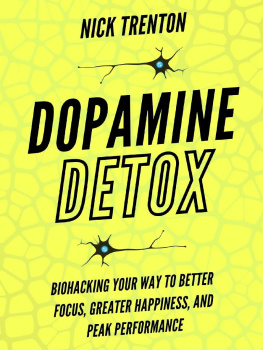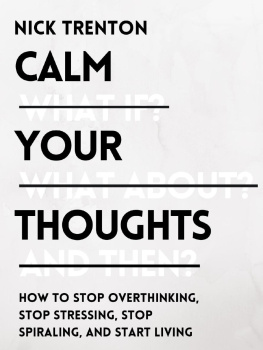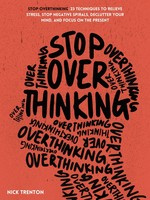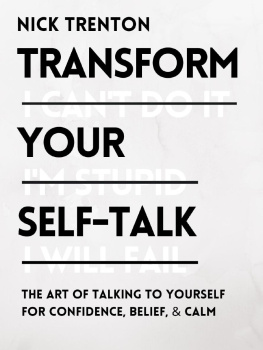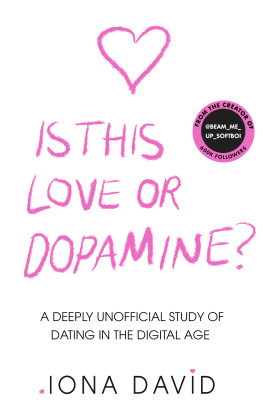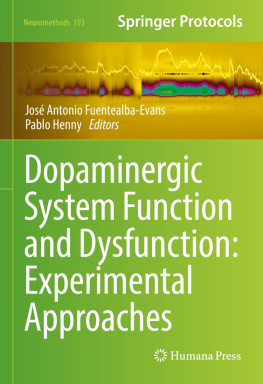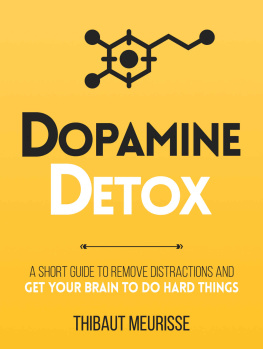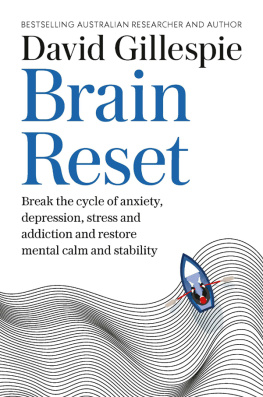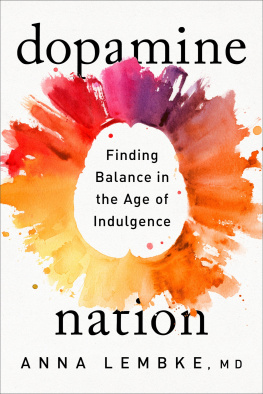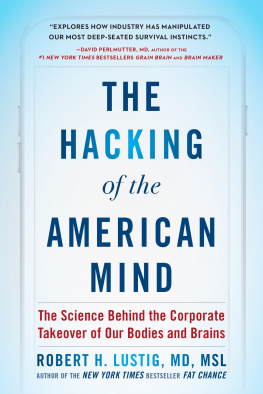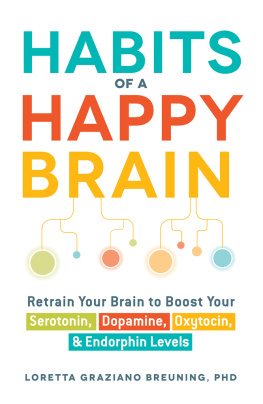Table of Contents
Dopamine Detox:
Biohacking Your Way To Better Focus, Greater Happiness, and Peak Performance
by Nick Trenton
www.NickTrenton.com

Pick up your FREE 22-PAGE MINIBOOK: The Path to a Calm, Decluttered, and Zen Mind.
- Unconventional ways to instantly de-stress and become present.
- How to focus on the present and ignore the past and future, and how to postpone your worrying.
- Regulation frameworks for times of inevtiable stress. How to keep it together!
<< Just click right here to gain inner motivation and quiet your mental chatter. >>

Table of Contents
Part 1: Dopamine and Your Brain
Every single person reading this book will share one thing in common: they inhabit biological bodies. But there is something else they may or may not possess, and thats the ability to think consciously about their physical wellbeing. This awareness allows them to take proactive steps to strategize and improve on their life, no matter what kind of body theyre working with.
Biohacking is broadly defined as any attempt to improve, upgrade, or enhance the biological realities of human life. Originally, biohackers were renowned for DIY experiments with drugs, gene editing, or body modification techniques that fell far outside of conventional science and medicine. In time, however, ordinary people also acquired a taste for embracing their power to use science to improve on what nature endowed them with.
In the chapters that follow, well be exploring three key areas in which the art of biohacking has been practiced, and several everyday ways that you can use these principles to your own advantage. Thankfully, you dont need to go to extremes to make drastic changes to your longevity, mood, mental faculties, self-discipline, and overall vitality. Whether its a good sleep schedule and the right supplements, or a completely rebooted dopamine system, well explore practical and proven techniques for making the best of your life, here and now.
If you could do one thing to improve your life drastically, what would it be?
There are countless books out there on self-discipline, productivity, self-esteem, purposeful living, emotional resilience, and more. But could there be something that underlies all these separate behaviors, attitudes, and mindsets? Well, yes. Maybe the secret ingredient for a life that is disciplined, focused, proactive, and balanced is simple: dopamine.
As neuroscientists gain a more sophisticated understanding of the physiological correlates of our mood, our cognition, and our behavior, it becomes clear that any serious change to our lifestyle must include a change to our biology. For a biohacker, the neurochemicals -- hormones and electrical connections in the brain -- are akin to the programming in a computer; if we can rewrite the code at the back end of our own biology, we can influence the programs we run.
Understanding the effects of dopamine on the human experience requires a bit of a perspective shift. Think of yourself as both the machine and the programmer you are able to consciously control your own experience if you understand the rules of its operation. In laymans terms, the brain is a neurochemical machine that operates according to a variety of hormones and neurotransmitters, which can be thought of as chemical messengers or instructions for the body. In a literal way, they are the concrete expression of your reality. For example, every time you feel love, disappointment, fear, or frustration, there is a precise neurochemical state in your body associated with the experience. It follows then that if we can alter this state, we can work backward and engineer our experience from the bottom up. In fact, in all the chapters that follow, we will inevitably be working with our neurochemistry, in one way or another, consciously or unconsciously.
One of the primary neurochemicals that operate in the brain is dopamine, which is linked to pleasure, motivation, reward, and so much more. For a long time, dopamine was considered to be a reward chemical. While this is not entirely untrue, we now know that it is more linked to the anticipation of reward and the search for more and better things than are available. Dopamine engages when we face a surprise, an unexpected pleasure that fills us with delight, which fills our brain with dopamine. Unexpected rewards provide us a lot of joy, while expected ones are subject to hedonic adaptation or the hedonic treadmill i.e., things lose their novelty and shine and stop providing us the same feeling of reward (Lieberman & Long, 2018, The Molecule of More).
Imagine this: you discover a new restaurant. It opened near your workplace, and you look forward to trying the food it offers. You go in and have a bite, and its marvelous. You feel enchanted and enamored e. Yet, even if the restaurant continues to provide excellent food on every visit, little by little, it will become less exciting because it becomes routine, and your brain knows what to anticipate every time. There is no novelty, no surprise, and the dopamine associated with this restaurant and its meals drop.
Dopamine always has us looking for something more and something novel rather than what we are accustomed to. The dopamine system is a brilliantly evolved mechanism that is responsible for all of mankinds questing, discovery, creation, and resilience. But can you see the problems it could cause as well? The modern world is full of temptations that affect our dopamine. Our biology simply did not evolve in the same socio-cultural environment we have created for ourselves in modern times. If youve ever experienced issues with poor motivation, addiction, bad habits, or procrastination, then youll know just how hard life is when your dopamine balance is out of whack.
Average social media usage, across the world, is around 145 minutes per day (Statista, 2021). That means that people spend over two hours every day on popular social media websites, and the number can be even higher for many. Social media engages us in a way few other things can and have an impact on our dopamine systems. Social media offers a never-ending stream of content, some of which can prove valuable, funny, and enjoyable. We never know when we will come upon something great, and that helps keep us engaged. Social media is also, well, social, which makes its appeal even stronger - we crave approval, connection, and affection, and social media can provide social stimuli that signal recognition or validation in the form of likes, retweets, comments, and so on.
Our dopamine systems can, essentially, be hacked by social media. We never know when to expect a notification or a fun video or something else. This ensures that we are never accustomed too much, and the novelty effect remains. In essence, this is the same trick that casinos use to keep people coming back. We can find the same mechanism in things like lotteries and raffles that allow our brain to anticipate a reward to come but not a certain one. The engineers of such sites are aware of these processes and design their interfaces specifically to target this weakness in our biochemistry. In other words, there is money to be made from exploiting the brains reward system, thereby getting people hooked on the cheap and endless reward of the 24/7 news cycle and never-ending content.
But its not just unscrupulous mega-corporations that train our brains toward addictive behavior. We can find a similar tactic in play in toxic relationships, when our partner might give us the love and affection we crave, but only sometimes, which keeps it unpredictable. Cognitive psychologists have long understood that this intermittent reward keeps us more engaged than if we had a more consistent stream of positive outcomes. Have you ever met someone who was so used to toxic relationships that they felt bored and uneasy when they found themselves in a happy, healthy one? You can bet that they had dysregulated dopamine.

